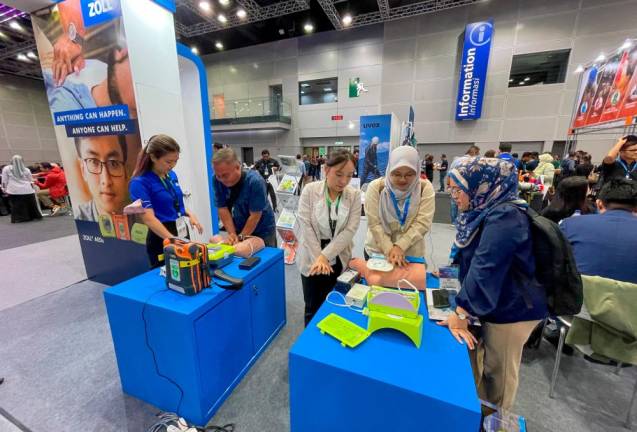KUALA LUMPUR: Bank Negara Malaysia (BNM) does not see a global recession on the cards due to the ongoing US-China trade war, but merely modest economic growth as trade tensions persist.
BNM Economics Department director Fraziali Ismail said the recession fears are overplayed at this juncture.
“We’re not seeing a recession risk, be it globally or domestically. What we’re seeing is lower growth compared to our long-term average,“ he told a media engagement session here today.
On Tuesday, Affin Hwang Capital cautioned that the escalating US-China trade tensions may possibly lead to a global recession in 2020, posing downside risks to Malaysia.
Protracted trade tensions have weighed on growth prospects and amplified financial market volatility. For Malaysia, flaring trade tensions pose significant downside risks to growth, as developments in the external sector could have substantial spillovers to the domestic economy.
Assuming all trades are tariffed, Fraziali said, global growth could be shaved 150 basis points but its shock would not be as big as the global financial crisis.
“It’s a huge shock but it won’t by its own plunge the global economy into a deep recession.”
While dismissing a global recession, the central bank noted that this may be potentially the lowest global growth and trade in 20 years if trade tensions escalate further, and the downside risks to global growth and trade are severe.
Fraziali said Malaysia’s growth will face external headwinds but the country’s inherent strengths will help it weather these challenges. Malaysia must stand ready and remain vigilant of risks and nimble policymaking is crucial in pursuing any opportunities that arise.
“Prepare for rainy days,” he said.
Malaysia’s export growth is directly affected given the significant exposure to the US and China. China (13.9%) and the US (9.1%) account for 23% of Malaysia’s exports and trade tensions have contributed to slower Malaysian export growth to both countries.
The moderation in exports is further amplified by Malaysia’s deep integration in the global value chain, being the second most integrated economy in the region with 55.6% of total exports in the global value chain.
However, Fraziali said Malaysia’s diversified exports help mitigate adverse impact of trade tensions, as seen in the resilience in Malaysia’s export performance by products and markets.
Electrical & electronics (E&E), crude petroleum, liquefied natural gas and petroleum products have been the key contributors to export growth at various periods of trade tensions.
“To the extent that there are shocks to a component, there are others that are still holding the fort. We’re rich in our diversity in terms of the structure of the economy, major trade partners and products that we produce,” said Fraziali.
The ringgit’s depreciation also provided some support to export growth in local currency terms.
There are already signs of trade diversion with Malaysia gaining 4.2% and 4.6% market share in the US and China for selected products between July 2018 and April 2019.
In the US market, Malaysia gained 4.2% market share, mostly in tariffed E&E products, as China saw a loss of 6.2%. In the China market, Malaysia gained 4.6%, mostly in tariffed commodities and petrochemical products, and the US lost 2.5%.











